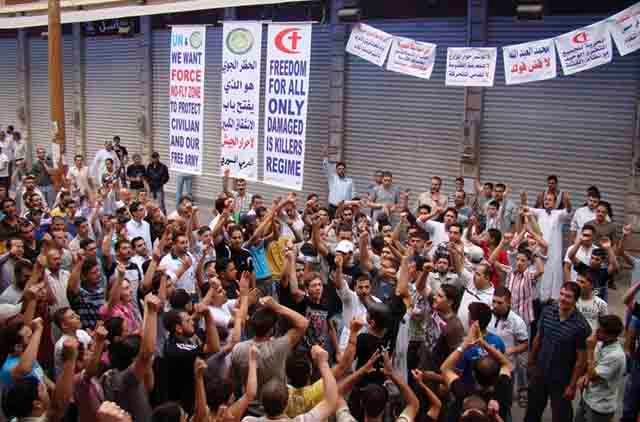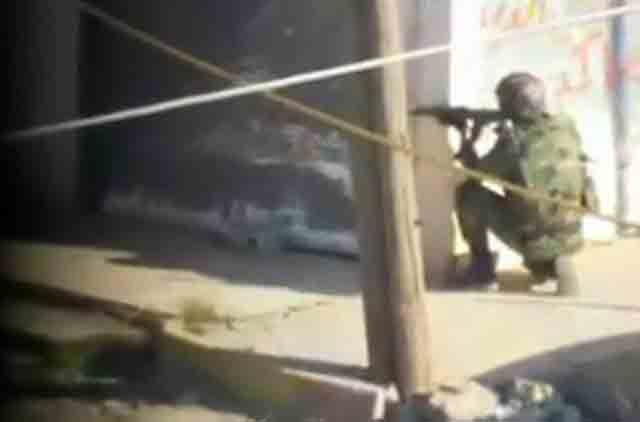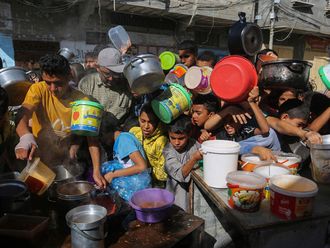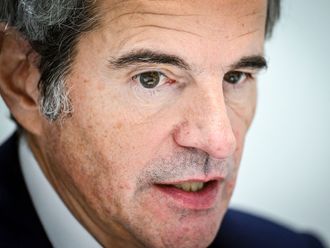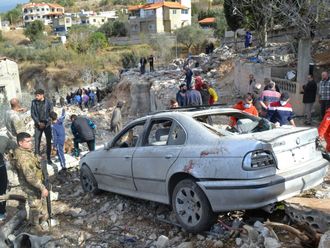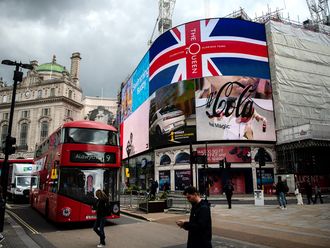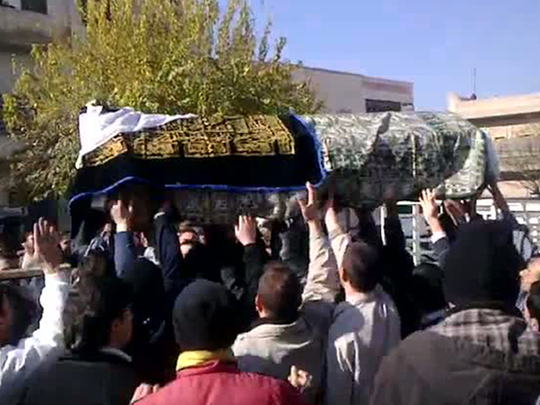
Beirut: Activists say Syrian forces have opened fire on an anti-government rally in a restive central city, as thousands of protesters demonstrated around the country.
The British-based Syrian Observatory for Human Rights did not report any injuries from the shootings in Homs, which took place after Friday prayers.
Syrians have taken to the streets for nine months to protest the authoritarian regime of President Bashar Assad.
The UN estimates more than 4,000 people have been killed in the government crackdown on the revolt.
Homs has emerged as a flashpoint of violence. On Thursday, a major Syrian pipeline carrying oil to a refinery in Homs province was blown up by unknown attackers.
Poised for massacre
Nicosia: Syria's opposition warned on Friday that thousands of regime forces and loyalist militias have encircled the protest hub of Homs, poised to launch what may be a final bloody assault to crush dissent.
The Syrian National Council said in a statement sent to AFP in Nicosia that President Bashar Al Assad's regime was using the pretext of what it called a "terrorist" attack on an oil pipeline to overrun the central protest hub.
"The regime (is) paving the way to commit a massacre in order to extinguish the revolution in Homs," said the SNC, the principle umbrella organisation drawing together opponents of Assad's regime.
Homs, an important junction city of 1.6 million residents mainly divided along confessional lines, is a tinderbox of sectarian tensions that the SNC said the regime was trying to exploit.
"The regime has tried hard to ignite the sectarian conflict using many dirty methods, which have included bombing and burning mosques, torturing and killing young men, and kidnapping women and children," said the opposition group.
"The regime also took a significant step... in burning oil pipelines in the neighbourhood of Baba Amr to blame what the regime calls 'armed gangs; in an attempt to crush the peaceful uprising on the pretext of a war on terrorism."
Build-up of troops
Witnesses on the ground in the city have reported a buildup of troops and pro-regime "Shabiha" militiamen backed by armoured vehicles who have set up more than 60 checkpoints, said the SNC.
"These are all signs of a security crackdown operation that may reach the level of a total invasion of the city," it said in the statement.
"We warn of the consequences of committing such a crime that could result in a massive number of casualties."
"We hold accountable the regime, and behind it the Arab League and the international community of what could happen to innocent civilians in the next few hours or days, and the implications for the region as a whole in the near future," said the SNC.
"The Syrian National Council also calls on all relevant international organisations and human rights organisations to take immediate action to pressure the international forums to provide immediate protection to civilians in Homs in particular, and throughout Syria in general."
The Assad regime's crackdown on dissent since mid-March has hit Homs particularly hard and activists say a great number of defecting soldiers have set up camp there to protect the protest movement.
An explosion that tore apart a pipeline taking crude to an oil refinery in Homs from eastern Syria, in an attack the regime blamed on "armed terrorist gangs".
But the Local Coordination Committees, which organises anti-regime protests, accused Assad's government of deliberately destroying the pipeline which serves a region seen as staunchly opposed to his rule.


